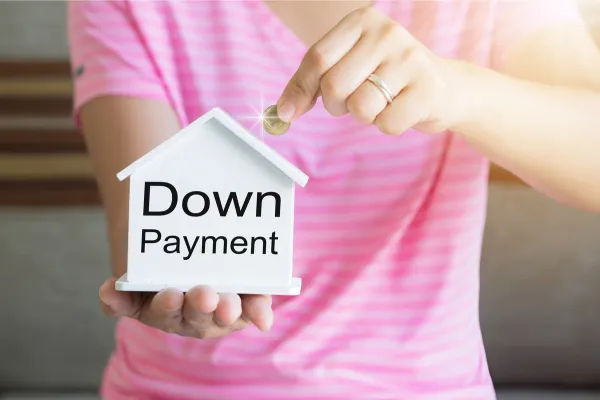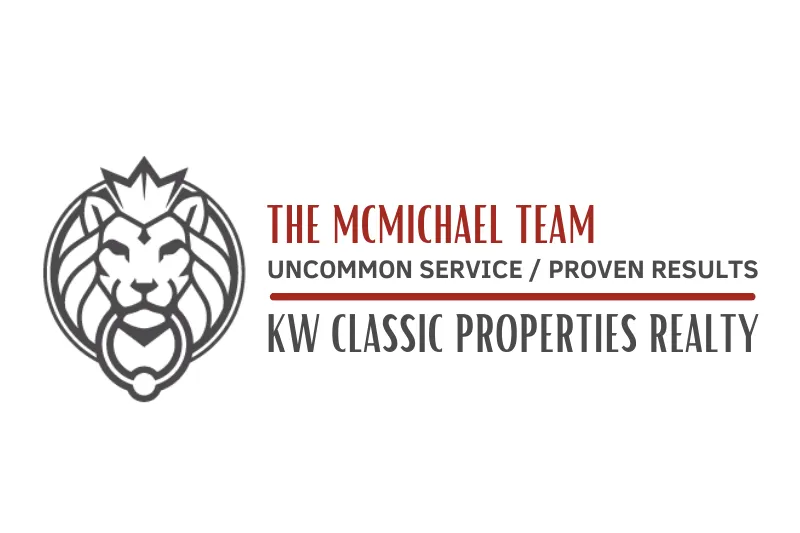Sell Your Columbus,Ohio Home Quickly With The McMichael Team
Join tons of highly satisfied homeowners who have worked with The McMicheal Team to sell their home quickly and for top dollar.
or call us at (614) 766-7766 today!
Are you ready to sell your house? Fill out this simple form or call (614) 769-7766.
Know Why You are Selling
If you know exactly why you are selling then it is easier for you to follow the right plan of action for getting what you want.
If you are a seller who needs to close a sale as quickly as possible, then you should know that getting the highest price possible is not one of your priorities. It does not mean that you won’t or cannot get the highest price, but it means that the price is not the deciding factor.
A buyer who can give you a quick closing time will appeal much more to you than a buyer who can offer you more money but the negotiation and closing time drag on.
It’s always good to know how low you will go, in terms of selling price. This will help to eliminate some of the offers that you find simply offensive or ridiculous. Even though you should consider all offers seriously and take into consideration the terms of each offer, sometimes, if you know the bottom line and are strict about it, you can save yourself time.
Once you know what your limits and reasons are, discuss them with your agent so that they can help you set your goals realistically. If you decide to list your home on your own, make sure you do research on the current market, and you get the proper advice you need in terms of legal issues, etc. The key is to be realistic and to know what your goals are so they can be met.
Plan of Action
- Analyze why you are selling – If you understand your motives, you will be able to better negotiate and to get what it is that you want, whether it be a quick sale, high price, or somewhere in the middle.
- Prepare your home for the buyer – Maximize the strengths of your property and fix up its weaknesses. You want the buyer to walk away from your home with a lasting good impression.
- Find a good real estate agent that understands your needs – Make sure that your agent is loyal to you, and can negotiate to help you achieve your goals. In addition, they should be assertive and honest with both you and the buyer.
- Be prepared for negotiation – Learn and understand your buyer’s situation; what are their motives? Can you demand a big deposit from them? Try to lock in the buyer so that the deal goes through.
- Negotiate for the best price and the best terms – Learn how to counter offer to get maximum value from every offer.
- Make sure the contract is accurate and complete – Be honest with your disclosures; you do not want to lose the deal because you were lying or diminishing your home’s defects. Insist the buyers get a professional inspection. This will protect both you and the buyer.
Finding the Right Agent
Not all agents work the same way. The most important attribute of an agent is that he/she is well connected to the real estate industry. He/she should know the market and provide information on past sales, current listings, his or her marketing plan, and at least 4 solid references. In addition, you also want to look for an agent that is honest, assertive, and one that best understands your needs.
Try to go with a local agent. They can better serve your needs because they should be more familiar with the local market conditions, local prices, and what’s hot or not in your community.
Considering Offers
When reading an offer, keep in mind that you are out to get the best price AND the best terms for you. If you focus solely on the price, you may overlook terms that could be favorable to you as a seller.
Some terms that may work in your favor:
higher-than-market-interest in a second mortgage for your home
the buyer will pay for most or all of the closing costs
the buyer will take care of any repairs
quick close – the buyer is pre-approved, ready to close in a timeframe that best suits you
all-cash deal
When reading through offers, remember to look at the whole package. Take the time that you need to assess what is being offered and if it meets your needs.
Setting the Price
The price is the first thing buyers notice about your property. If you set your price too high, then the chance of alienating buyers is higher. You want your house to be taken seriously, and the asking price reflects how serious you are about selling your home.
Several factors will contribute to your final decision. First, you should compare your house to others that are in the market. If you use an agent, he/she will provide you with a CMA (Comparative Market Analysis). The CMA will reflect the following:
houses in your price range and area that were sold within the last half-year
asking and selling prices of houses
current inventory of houses on the market
features of each house on the market
For Sale By Owner – A Good Idea?
FSBO (pronounced fizz-bo), or For Sale By Owner, is a way of selling your home without the use of a professional real estate agent or broker. The idea behind FSBO is that by selling your home yourself, you save the approximate 6% that would be the agents’ commission.
6% may not sound like a lot, but it can add up, especially on more expensive homes. But before you run off and decide to sell your home FSBO, you must remember that to get savings like that, there must be a cost. So what’s the catch? Selling FSBO is hard. A lot harder.
Only about 10% of sellers that decide to do FSBO are successful at it. And not all of them end up saving themselves money. FSBO sellers often end up accepting a lower price for their home than they would with an agent.
There are of course other issues as well. Can you afford to make selling your home your full-time job? Because for a lot of FSBO sellers, that’s exactly what it is. Do you have the time and capital to spend on the marketing, advertising, inspections, paperwork, phone calls, showings, and problems that come up when any home is sold?
Selling with a professional agent also has other advantages. An agent can get your home listed on the MLS (Multiple Listing Service) and other popular websites where not only homebuyers but also other agents can easily find it. Professional real estate agents also have an extensive network that allows them to more easily find a buyer.
So before you decide to sell your home yourself, thoughtfully consider just how much time and effort you can spare for selling your home, as well as how important it is that your home sell sooner rather than later.
Recent Posts

What You Need to Know About Down Payments When Buying a Home
“You’re actually investing in your future, not buying a home!” - Sarah F. Findel
Introduction:
Embarking on the journey of homeownership involves many financial considerations. One of the decisions you'll encounter is determining your down payment. While it may appear straightforward at first glance, there is more to it than just a lump sum of money. There are important details to grasp in order to make well informed choices on your path towards owning a home.

Making a larger down payment can have several advantages, including lower monthly mortgage payments, reduced interest costs, and increased chances of mortgage approval.
What Is a Down Payment?
A down payment refers to an upfront payment made, at closing, when buying a home. It typically represents a percentage of the property's purchase price and serves as your initial investment in the house. The remaining cost of the home is covered by your mortgage loan. In addition to your down payment money, you will need to have funds for closing costs. Don't confuse down payment with closing costs. They are separate expenses in the homebuying process. Closing costs are the funds needed to pay your lender and the title company to close the loan.
How Much Should You Put Down?
The appropriate amount for your down payment can vary significantly from case to case. While 20% is often considered standard practice, many prospective homeowners opt for lesser amounts. Some programs, like VA loans, allow as little as zero down. FHA loans will allow 3.5% down payment. Next we will discuss choices for your down payment, considering the advantages and disadvantages of each option.
Advantages of a Larger Down Payment
Opting for a larger down payment can bring several benefits, such as, lower monthly mortgage payments, reduced interest expenses, and increased likelihood of mortgage approval. If you can afford to make a larger down payment, it is good to do so in most cases.
Programs Offering Down Payment Assistance
For those who require assistance, there are both government and private programs that provide support with down payments. Your lender can provide information on these programs and guide you on how to assess your eligibility.
Factors Impacting Your Required Down Payment
Many factors can influence the amount of down payment you need including your credit score, the type of mortgage you select, and the property's purchase price. Let's break down how each of these factors influences the amount you'll need to put down:
1. Home Price: The most apparent factor is the price of the home you intend to buy. Down payments are typically expressed as a percentage of the home's purchase price. The higher the price of the home, the larger your down payment will need to be.
2. Lender Requirements: Different lenders may have varying requirements when it comes to down payments. While 20% is often considered the standard, some lenders may accept less, especially for first-time homebuyers or those with excellent credit. Conversely, others may require more substantial down payments, depending on your financial situation and the type of mortgage you're applying for.
3. Mortgage Type: The type of mortgage you choose can significantly impact your down payment. Government-backed loans, such as FHA loans, often allow for lower down payments, sometimes as low as 3.5%. Veterans may qualify for VA loans with no down payment requirements. Historically Conventional loans required 20% or more down payment but now there are Conventional loans with as little as 3.5% down payment.
4. Credit Score: Your credit score plays a vital role in determining not only whether you'll be approved for a mortgage but also the down payment amount. A higher credit score can make you eligible for loans with lower down payment requirements. Conversely, a lower credit score might necessitate a larger down payment to secure financing.
5. Debt-to-Income Ratio (DTI): Lenders consider your debt-to-income ratio when evaluating your mortgage application. A lower DTI, which indicates you have fewer outstanding debts relative to your income, can make you eligible for loans with more favorable down payment terms. Conversely, a high DTI may require a larger down payment to mitigate risk for the lender.
6. Location and Loan Limits: The geographical area in which you're purchasing a home can impact your down payment requirements. In some regions, there are loan limits imposed by the government. If you're buying a home in an area with higher loan limits, you may be able to put down a smaller percentage of the home's price.
7. Financial Goals and Flexibility: Your own financial goals and flexibility also play a role. You might choose to make a larger down payment to lower your monthly mortgage payments or to avoid private mortgage insurance (PMI). Alternatively, if you prefer to keep more cash on hand for other investments or financial goals, you might opt for a smaller down payment, even if it means higher monthly payments.
Understanding these variables and working with a knowledgeable mortgage professional can help you determine the right down payment strategy for your specific situation.
Saving for Your Down Payment
Saving money towards a down payment is a crutial step in the homebuying process. Here are some tips on how to save money for a down payment on a house:
1.Create a budget and track your expenses to identify areas where you can cut back and save more money.
2.Set up a separate savings account specifically for your down payment and contribute to it regularly.
3.Consider cutting back on non-essential expenses such as dining out, subscription services, and entertainment.
4.Look for ways to increase your income, such as taking on a part-time job or freelancing.
5.Explore down payment assistance programs or grants that may be available in your area.
Acquiring Down Payment Funds
Apart from savings there are other sources from which you can obtain funds for your down payment, such as receiving gifts from family members, down payment assistance programs, seller contributions, or taking advantage of employer assistance programs. Navigating the complexities of down payments and mortgages can be challenging. Consulting with a mortgage professional can provide personalized guidance. They can analyze your financial situation, credit history, and goals to help you make an informed decision about the down payment amount that suits your needs.
Conclusion
In conclusion, your down payment amount is influenced by a combination of factors, including the property's price, lender requirements, mortgage type, credit score, location, and your unique financial circumstances and goals. It's crucial to evaluate these variables carefully and seek expert advice to make a well-informed decision about the down payment that aligns with your homeownership objectives. Remember, a well-planned down payment strategy can pave the way for a successful and financially secure homeownership journey.
FAQs
1. Can I buy a home with no down payment?
While it's possible through certain loan programs, most conventional mortgages require a down payment.
2. What are closing costs, and are they the same as a down payment?
Closing costs are separate from the down payment and include fees associated with the home buying process, such as appraisal and title fees.
3. Are there tax benefits associated with down payments?
In some cases, mortgage interest payments may be tax-deductible, which can provide a financial benefit over time.
4. Can I use a gift from a family member for my down payment?
Yes, many lenders accept down payment funds in the form of a gift, but specific rules and documentation are typically required.
5. What's the minimum down payment required for an FHA loan?
The minimum down payment for an FHA loan can be as low as 3.5% of the purchase price, making it a popular choice for first-time homebuyers.
Getting the Highest Price in the Shortest Time
In order to get the highest price in the shortest time, you need to know how to market your home. The better you market your home, the more offers you will get. And the more offers you get, the more choices you have to get the price and terms you want.
The most important factor of marketing your home is pricing it right. Your price should be adjusted to reflect the market and your property’s worth. The key is to get as many people as possible checking out your fairly priced property. If your property is not priced fairly, there will be no buyers because your price is set too high.
Another important factor is the condition of your home. Make sure that your home looks ready to be sold. Fix any defects (peeling or faded paint, cracks, stains, etc.) Condition alone can sometimes prompt fast buying decisions. Not only should you fix any defects, but consider upgrading your home by making major repairs and cosmetic improvements before selling. A nice looking home triggers the emotional response that can lead to a financial response.
Learn how to negotiate the best terms for all parties involved. Terms are another factor that may be adjusted to attract buyers. If you insist on getting your asking price, think of what you can offer to the buyers. For example, improvements you’ve made or even offering seller financing at a lower than market interest rate on a portion of the sale price. Convince them why they should be paying the price you have set.
Lastly, get the buzz out about your home. List your house with a hot agent that ensures your house is listed on the MLS and on the Internet. On your own, get the word out. It should always be visible to passersby that your house is for sale, whether it is through signs, local advertisements or you telling friends, family, and acquaintances.

1349 W. Lane Ave, Suite 1125, Columbus, OH, 43221
(614) 769-7766
(614) 768-6531
www.livingincolumbus.com





